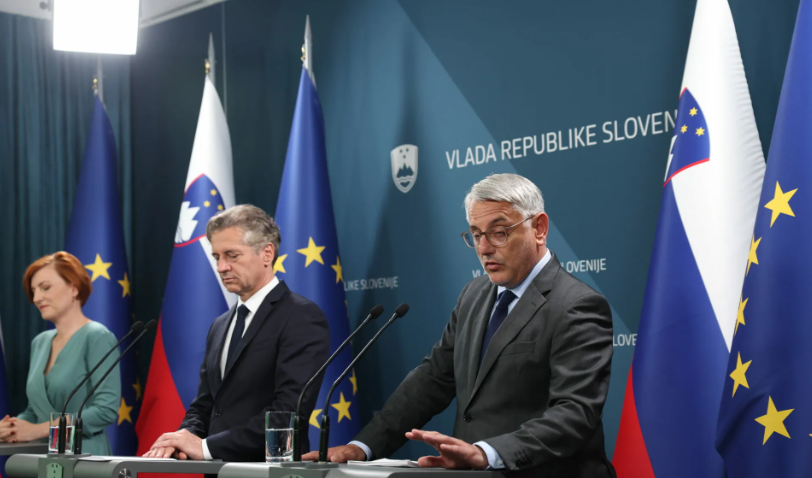“A repeated slide down the scale of economic freedom, a key indicator of the functioning of a free and plural society. Almost all former communist countries are ahead of us in terms of material standards. Our neighbours, the Croatians, have also overtaken us in the Index of Economic Freedom. What is going on with Slovenia?” wonders Tone Kajzer, former Slovenian ambassador to the USA.
Slovenia is sinking further and further in economic freedom every year. Today, we are ranked 44th in the world, with many former socialist countries ahead of us: Poland, Slovakia, Bulgaria, the Czech Republic, Latvia, Lithuania and even Croatia.
International data: economic freedom has plummeted under Golob!
Tone Kajzer, former Slovenian Ambassador to the USA, warned that economic freedom is a key indicator of the functioning of a free and plural society. By comparison, in 2023, we were ranked 37th, and in 2022, we were ranked 32nd. International indicators show that we are sinking.
It is an undeniable fact that economic freedom has deteriorated sharply in the last two years, i.e. under the government of Robert Golob, which shows that the government is adopting very poor measures or not adopting the most urgent ones at all.
Kajzer also commented on the matter for our web portal, and we are publishing his comment in its entirety below:
“As you know, economic freedom is the fundamental right of every human being to manage his or her work and the wealth he or she creates. The Index of Economic Freedom is therefore the most important indicator for me, as an economist (I am a geodesy engineer by primary education, but then, before specialising in international relations and starting my diplomatic career, I graduated from an economic business school), of how free an individual really is. In countries that top the economic freedom index, democratically elected governments allow the free movement of capital and goods, which creates the conditions and gives the motivation for individuals to reach their full potential.
Unfortunately, Slovenia is now among the countries with a limited or lower level of economic freedom, due to the decline in the parameters used to measure the Index of Economic Freedom. In fact, there are 12 factors (qualitative and quantitative) through which the level of economic freedom is measured. These factors are divided into four different pillars, namely the rule of law pillar, the pillar covering the role and scope of the state (public spending, tax burden, fiscal policy), the pillar relating to the regulatory framework (freedom of enterprise) and market openness. As you know, we are part of the European Union, so certain parameters are in the domain of Brussels, which I would not go into at this point, although the problem is that the competitiveness of the EU as a whole (and also productivity) is declining in relation to our competitors.
Personally, I see the reasons for the constant decline in the Index of Economic Freedom during the term of the current government as mainly due to uncontrolled public spending and inconsistent fiscal policy (you can ask my former professor and friend Dr Kračuna, who is the chairman of the Fiscal Council, about this). At the same time, the government is pursuing an unstimulating and completely opaque fiscal policy, and is further tightening the regulatory framework (remember the unwise measures on working time management, etc.), which is a burden for businesses and makes them uncompetitive with, for example, businesses in neighbouring Austria.
If these things do not change, and I personally do not think they will, because this government has no economic concept and, as you can see, does not want to reduce and rationalise public spending and relax regulatory red tape (regarding the tax policy pursued by the current government, you can ask Mr Simič), we cannot expect to see any improvement. Unfortunately, I am a pessimist, and I estimate that there will be no change for the better until the elections, early or regular, which means that the material standard in Slovenia will also continue to fall, especially in comparison with the countries we used to be an example for (I know that the Estonians used to look up to us, but now they are just wondering what is happening to the Slovenians).”
Domen Mezeg


